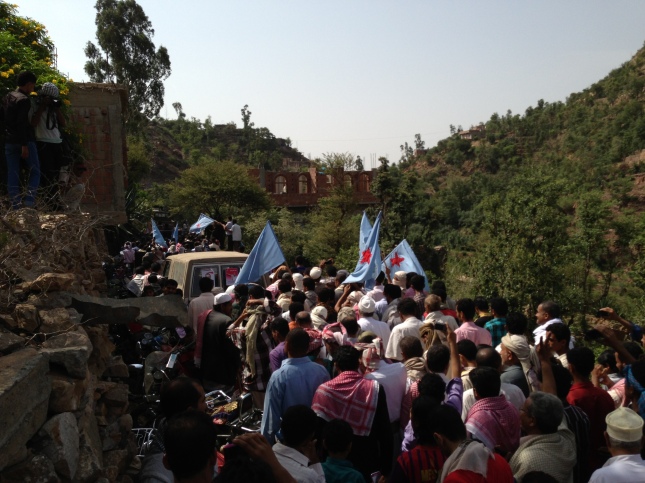Monthly Archives: August 2013
For those just tuning in
As someone who’s lived in Yemen for more than two years, its hard to suppress a general sense of alarm each time the media spotlight falls on this particular corner of the Arabian Peninsula. In my work as journalist, I often feel like I’m swimming against the current with only a handful of other comrades, fighting a nearly sisyphean battle to add nuance to discussions that tend to be plagued with rather lazy stereotypes. With Yemen once again in the news due to the current “AQAP threat alert,” I figured I’d collect some of the pieces I’ve written for those seeking a deeper context into the country that–for better or for worse–is currently dominating the news cycle.
It’s fallacious–if not dangerous–to equate Yemen’s troubles with Al Qaeda. Almost every Yemeni you speak with will tell you that the nation’s Al Qaeda presence is only a result of other larger issues. Yemen remains acutely impoverished and while the country’s current post-Arab Spring “transition”–most specifically, the ongoing Conference of National Dialogue–has been hailed by some as a model, things are far more complicated. The ultimate fruits of the 2011 uprising against Ali Abdullah Saleh remain unclear; the central government continues to face the challenge of reckoning with the Houthi rebels, who have carved out a virtual state within a state in the country’s far north, and southern secessionists, who seek to restore autonomy to the formerly independent south. The country often seems as if it’s sitting on a knife’s edge; “on the brink” appears to be the favored term. Still, on occasion, there are moments where Yemen’s political divisions feel as if they’re not as fractious as they often appear to be.
Even in areas notorious for their Al Qaeda presence, residents tend to argue they have bigger things to deal with. Still, the battle against Yemen’s local extremist franchise often tend to dominate the discussion outside of Yemen, even its effects of American government’s policies that tend to do so here. At times, the resentment of these policies is palpable. But as an American who’s nearly constantly surrounded by Yemenis, I’d argue its false to say that anti-American sentiment here is rife. Few Yemenis are keen to support AQAP, which is unsurprising, as the vast majority of those killed by the group’s attacks have been Yemenis themselves.
Since current president Abdo Rabbu Mansour Hadi took office as part of an internationally brokered power transfer agreement aimed at ending the uprising against Saleh, there have been some tentative gains in the fight against AQAP. But even victories are not as resounding as they seem. American drone strikes may have lead to the deaths high-ranking AQAP militants like Said al-Shihri, they’re also deeply opposed by many Yemenis. There have been numerous cases of civilian casualties, in addition to strikes that seem to contradict the Obama Administration’s claims that they’re only used as a tool of last resort. In areas where the strikes are common, many locals say they’re ultimately doing more harm than good.
This shouldn’t have to be stated, but Yemen is–obviously–more than simply a “battleground in the fight against Al Qaeda.” As a young freelance journalist, I often feel particularly enslaved to the tides of media interest. But to state the obvious, I’d much rather be writing about things like Sanaa’s surprisingly vibrant art scene, the glories of Yemeni cuisine, of certain controversial cultural habits. In the end, the last thing Yemen represents for me is a refuge of bloodthirsty militants plotting to strike the US and, for that matter, I’ve long seen it as far more than just a staging point for launching my career as a journalist. Ultimately, Yemen is my second, adopted country; more than anything–as as bizarre as it may sound–Yemen is home.
